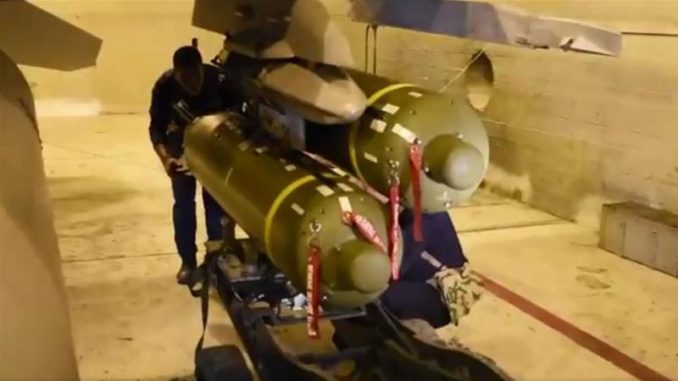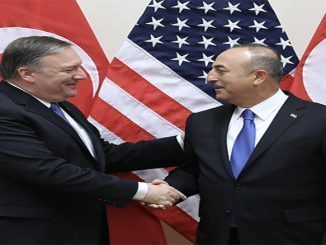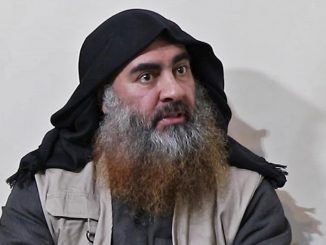
Egypt’s armed forces have used internationally outlawed cluster bombs, made in the United States, in operations aimed at crushing Islamic extremists in northern Sinai, Amnesty International said Wednesday.
The use of such weapons, if confirmed, would not only contravene the treaty banning their use, signed by a majority of countries, but may also violate United States laws regarding recipients of American military aid, like Egypt. Amnesty International said an analysis of an official Feb. 21 video released by the Egyptian military, trumpeting the triumphs of its northern Sinai crackdown on militants, showed one of the weapons, which can kill and maim indiscriminately.
Although the video described the weapons as improvised explosive devices planted by the militants, Amnesty said, the markings on one identified it as an American-made Mk-118 anti-tank anti-personnel submunition, “which could only have been dropped by the Egyptian Air Force.” Amnesty said the video showed the weapon to be “untampered with and in good condition despite its age,” with an identifying number clearly visible. “This suggests that the submunition has been deployed in recent operations,” Amnesty said in a news release. “This new video confirms our worst fears, that the Egyptian armed forces are using cluster bombs in North Sinai,” the group said.
While there have been other suggestions that Egyptian forces are using cluster munitions in the Sinai campaign, the video was proof, said Raed Jarrar, Amnesty’s advocacy director for the Middle East and North Africa. “This is like the smoking gun, because it’s very obvious that these munitions were dropped from a fighter jet,” he said in a telephone interview. Mr. Jarrar suggested that the video, released by the Egyptian military spokesman’s office, had inadvertently betrayed, to knowledgeable viewers, what they were really seeing. “The Egyptian government is so deep in its own lies and propaganda, they have lost track of their own lies,” Mr. Jarrar said.
There was no immediate reaction from the Egyptian government to Amnesty’s assertion, which was released early Thursday Egyptian time. Officials at the Defense Department did not immediately respond to a request for comment. A State Department official, responding on the condition of anonymity, did not address Amnesty’s assertion about the Feb. 21 video. But the official said in an emailed statement that “the Department continues to emphasize to our Egyptian government interlocutors the importance of a comprehensive approach to counterterrorism that protects and minimizes damage to civilian populations.”
Cluster munitions encompass an array of rockets, bombs, missiles and artillery projectiles that scatter smaller weapons, called submunitions, over a wide area. They can hit civilians far from intended targets. Roughly 20 percent fail to properly detonate upon impact, leaving unexploded bomblets that can kill civilians even years later. Egypt, like other Middle East countries, has not signed the treaty banning cluster munitions. While the United States has not signed the treaty either, it pledged in 2008 to restrict their use.
Department of Defense documentation obtained by Human Rights Watch and cited in their cluster munition survey shows that Egypt possessed 1,300 Rockeye cluster bombs, containing 321,000 Mk-118 submunitions, as of 2007. Stephen Goose, director of Human Rights Watch’s arms division, said he had not yet been able to discuss with Amnesty its assessment of the video. But he said that any use of cluster bombs “by Egypt or any other fighting force is appalling” and should be condemned. “That is why they have been banned internationally,” he said. “Egypt should cease any use of cluster bombs immediately.” Sinai’s Islamic extremists, who are largely confined to the peninsula’s northern half, have killed hundreds of Egyptian security officers since the military ousted the country’s first democratically elected leader, Mohamed Morsi of the Muslim Brotherhood, in 2013.
Despite several campaigns aimed at “eradicating” the insurgency, the Egyptian authorities have failed to regain full control over the area. The military’s latest operation, which began on Feb. 9, has left at least 82 militants dead and more than 1,800 imprisoned, according to state media. Security and humanitarian concerns loom over these military efforts both in Egypt and internationally, as human rights advocates and local tribal leaders accuse the military of using scorched-earth tactics that are killing civilians, and radicalizing youths as a result.
The Egyptian government vehemently denies these allegations, but it has refused to lift the news media blackout it imposed on northern Sinai since the unrest began. Even American officials, legally obliged to ensure that American weapons given as military aid to President Abdel Fattah el-Sisi’s government are not being used to violate human rights, have often been denied access.
Tribal leaders in the northern and central parts of the peninsula and human rights advocates say the local population is suffering from shortages of food, electricity and medicine. The authorities also frequently cut off the internet and cell service, and they have shut down schools and universities.



